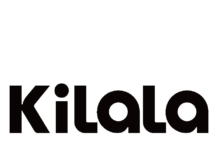If you’ve ever been to a nail salon before, chances are you’ve encountered a Vietnamese establishment; in fact, they seem to be running any given nail salon that you might walk into. But why? Is it a family tradition, the secret of the French manicure passed down from generation to generation? Do they have a natural ability to own and operate these types of businesses? Or is it something else?
In fact, the origin behind this phenomenon is far more interesting than a family tradition or an innate knack, and it all starts with the Vietnam war, a Hollywood actress, and 20 refugees.

Tippi Hedren, arguably best known for her work in Alfred Hitchcock’s “The Birds” and her big cat rescue, visited a Vietnamese refugee camp in Northern California some 40 odd years ago. “We were trying to find vocations for them,” Hedren told BBC News, “I brought in seamstresses and typists — any way for them to learn something.”
But there was one thing that caught the attention of the 20 women in Hope Village — ten things, rather. “They loved my fingernails,” she said, realizing that she needed to work with their interests if the women were to succeed in the U.S. She immediately took action, flying in her own personal manicurist and recruiting a local beauty school to educate the refugees. Upon their graduation from the programs, she ensured that all the women found jobs throughout Southern California.
“I loved these women so much that I wanted something good to happen for them after losing literally everything,” Hedren said of the experience. “Some of them lost their entire family and everything they had in Vietnam: their homes; their jobs; their friends — everything was gone. They lost even their own country.”
Today, the nail salon industry is worth approximately $8 billion — dominated by Vietnamese-Americans, of course, with many of them separated by the original twenty women taught by Tippi Hedren by only a degree or two.




